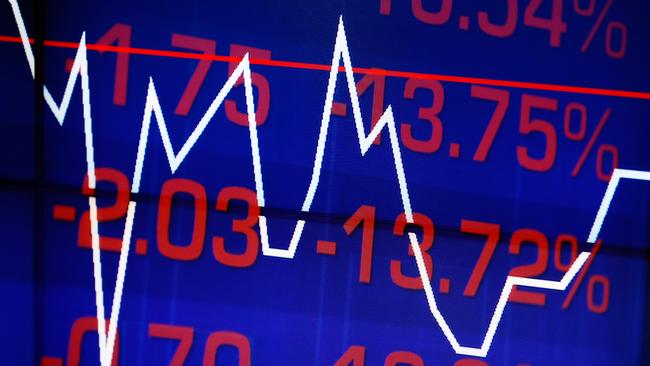
When the government announced that people who had been stood down would be able to access $10,000 of their superannuation in the current financial year and another $10,000 in 2020-21 (before September 24) it is unlikely they fully understood the ramifications of that decision to a number of the industry superannuation funds.
The decision to give members access to their funds came at a time when a number of the funds have members concentrated in the industries where stand downs have been huge. The hospitality, tourism and retail areas are the biggest. Hostplus and Rest funds draw most of their members from these areas. Other funds are also affected. So a number of funds face a substantial fall in contributions as well as big outflows flows from the $20,000 withdrawal scheme.
Many industry funds have achieved fantastic returns partly because they have invested in both local and overseas infrastructure/property plus overseas shares. In addition many boosted returns by holding less cash than retail funds because those industry funds (incorrectly) could not conceive of circumstances where there might be a major liquidity crisis.
But a deep secret in the industry fund movement was the fact that a number of the funds(not all) have suffered major cash outflows as a result of bad currency hedging decisions. That’s the backdrop.
The drama actually started over the weekend of March 20-21 when many of the superannuation funds’ trustees meet to check the values of their non-listed assets such as infrastructure and property and make sure they were valued in line with the new values set by the stock market. I had alerted them that unless they acted quickly they could be personally liable if inflated payouts were made. There was no time to lose. The write downs were mostly announced on Tuesday March 24.
Around the same time a fateful decision was made.
The industry funds asked the government or the Reserve Bank to provide them with liquidity so they would not be required to dump Australian shares to fund the outflows.
For superannuation funds to ask the government for help was an extreme measure and the government was initially taken aback. But in Canberra there was lingering deep bitterness over the government last January being blamed for fee rises. So in Canberra the industry funds had it coming. They could stew in uncertainty.
But that the request would probably never have been have been made unless some of the funds had a serious problem with liquidity that would require considerable assets sales led by Australian shares.
After the request had been leaked I was able to background the investment community on the point revealing that many funds “currency protected” about half their overseas shares and infrastructure. But many of the “protections” were short term measures whereby at the end of the three months, if the Australian dollar rose, the banks would give the industry funds a cheque. Conversely if the Australian dollar fell the funds had to give the banks a cheque. Unfortunately the Australian dollar fell by about 13 per cent in the three months March 15 so some funds wrote out large cheques to the banks.
That commentary sent some of the industry funds into a spin because it also disclosed that the government would not recant on its announcement to allow members to access their funds and also had no interest in providing liquidity. The government was more interested in having APRA look at what on earth had gone wrong.
From what I can tell on the morning of Friday March 27 the funds set about contacting third parties to check the accuracy of my comments. When they found them correct on Friday afternoon they decided that they had no choice but to start selling Australian shares. There were big parcels to sell. And, of course, it was a good time because the market had experienced a substantial rise. Accordingly early sales were at prices that were at levels much higher than when the funds first requested help but by the end of the day the market was down 5 per cent with almost all the fall taking pace in the final hour or so.
One would have expected that they would have also sold some of their overseas holdings over the weekend ---again at levels well above the bottom. So where to now? I am not privy to the level of selling required to overcome the liquidity difficulties of some of the funds. Part of the problem is that the disclosure of all the retail and industry superannuation funds is appalling and no one had a chance to alert them to the silly currency protection games the banks had convinced them to engage in.
I believe it is maybe necessary for some of the funds to merge. Indeed mergers are well overdue.
In the past difficulties in the superannuation fund movement have been sorted out by a group of leaders who have proved very skilled in this area. In the current situation the person who needs to be called in is Greg Combet. Combet is on Nev Power’s National COVID-19 Coordination Commission committee so is highly respected by both sides of politics and in the superannuation industry. He needs to find out exactly what the problems are. If they can be relatively easily resolved then the status quo may remain. And if they are more serious (and the call for government help indicates that they might be) then mergers may be required and Combet is ideally suited to bringing those mergers to fruition.




The sudden sharp fall in the Australian share market in the final hour of trading last Friday was the inevitable culmination of a week of high drama. And the repercussions from that drama will extend into this week’s trading. Its first important to understand the backdrop to the drama.